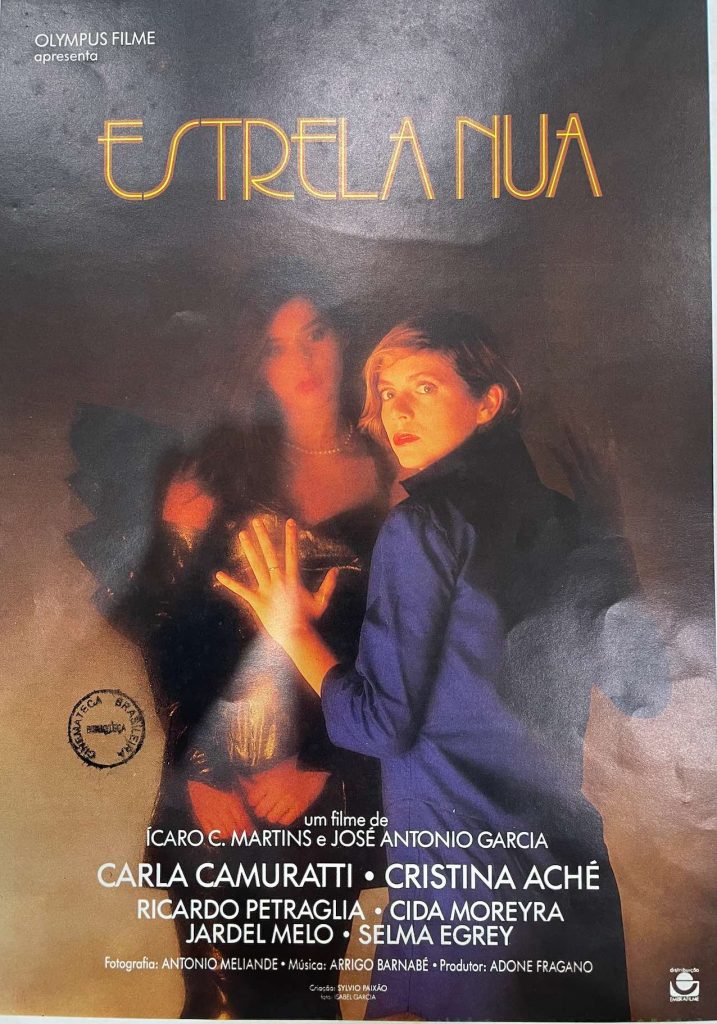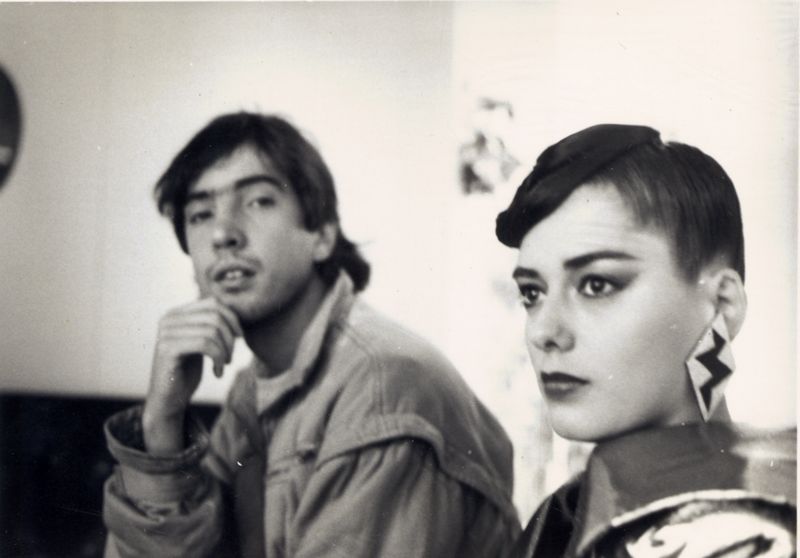
Naked Star
by Ícaro (Francisco C) Martins & José Antonio Garcia
Set behind the scenes of Brazilian cinema, it focus on the story of Angela (Cristina Aché) – an actress in an existential crisis due to the overexposure of her image – who commits suicide in a car accident, and Glorinha (Carla Camurati), a voice actress who dreams of becoming a star and gets her big chance when she is asked to dub the voice of the recently deceased actress. Through the parallel trajectories of these two women – one in decline and the other on the rise – the film plunges into a relationship of love and mysticism between the artist and her work, the actress and her characters, in a process in which all the limits of individuality are destroyed, until the protagonists come face to face with their madness. Inspired by Brazilian authors, Nelson Rodrigues and Clarice Lispector.
Naked Star is part of Cinema of Desire project, in partnership with the Brazilian Cinemateque, and will soon be restored in 4K.
Carla Camurati, Cristina Aché, Jardel Mello, Ricardo Petraglia, Selma Egrei
Cida Moreira, Patricio Bisso
Ícaro (Francisco C) Martins & José Antonio Garcia
Adone Fragano
Olympus Filmes
Antonio Meliande
Eder Mazini
Renato Morás
Arrigo Barnabé
Carlos S. Sanders, Oswaldo Malagutti Jr.
José Antonio Garcia (1955 – 2005) was a Brazilian filmmaker. A member of the São Paulo cinema generation of the 1980s, known among São Paulo critics as the “New São Paulo Cinema”, he attended the scriptwriting and directing courses at USP’s School of Communication and Arts between 1973 and 1976, where he directed some experimental short films, such as Hoje tem futebol (1976), Marilyn Tupi (1977) and Tem bola na escola (1979), before making his feature film debut in partnership with Ícaro (Francisco C.) Martins. His solo film, O Corpo (1991), based on the short story “A Via Crucis do Corpo”, by Clarice Lispector, with Marieta Severo, Claudia Jimenez and Antonio Fagundes, won awards at the Brasilia (Brazil) and Cartagena (Colombia) Festivals. He also directed the feature film Minha Vida em Suas Mãos, produced by and starring actress Maria Zilda Bethlem. He died in Rio de Janeiro in 2005, after premiering a play he directed based on Clarice Lispector’s works: “Crônicas para não esquecer e A Pecadora Queimada e os Anjos Harmoniosos”.
Ícaro, or Francisco C., Martins (1954), started out in the “New São Paulo Cinema”, writing and directing, together with José Antonio Garcia, O Olho Mágico do Amor (1982), Onda Nova (1983) and Estrela Nua (1985), winning several awards, such as APCA, Gov. do Estado de SP, among others. He collaborated on the scripts for TV Cultura’s renowned series “Castelo Rá-Tim-Bum” and was the screenwriter for André Ristum’s Tempo de Resistência (2003). Together with Helena Ignez, he directed Luz nas Trevas – A volta do Bandido da Luz Vermelha (2010), shown at the 63rd Locarno Film Festival. Director and co-writer of Maria – Don’t Forget I Come From the Tropics, an official selection of the “It’s All True” festival in 2017. In the theatre, he has directed virtual shows such as” The Grand Inquisitor” by Fyodor Dostoevsky, Diana, by Celso Frateschi and Horácio, by Heiner Müller (Teatro Ágora, 2021/22); In 2022, at SESC Consolação, he collaborated with Vivien Buckup to direct Chekhov’s The Swan Song and, together with the author Celso Frateschi, directed the play Gongorê.

